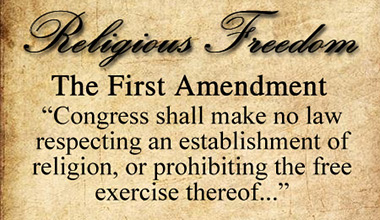UPDATE 1 – ADDED MEDIA
Introduction
In this multi-part essay (replete with multimedia content), we begin with sheer enjoyment of schlock horror (as well as more serious films), and move on to discuss social, political and spiritual issues as reflected in the cultural mirror provided by film, TV, and literature. (Media files will be added gradually. Please check back for updates.)
We watch scenes from the 1944 horror film Voodoo Man, comparing it to Manos, The Hands of Fate, “The Brain of Morbius,” and “Dr. Tongue’s 3D House of Stewardesses.” Also discussed: But I’m a Cheerleader, One Flew Over the Cuckoo’s Nest, “The Happiness Patrol,” and The Front. We ponder forms of social control driven by nativist stereotypes, including the ‘hypnotized by swamis’ trope. How do such tropes feed into the anti-cult narrative used to justify targeting minority adherents with coercive attempts at behaviour modification?
We’re in for some fun, but also serious film criticism and wide-ranging social commentary. Perhaps what’s needed is a ‘giant brain’ to process all this information! But are giant brains really all they’re cracked up to be? We examine clips from Desk Set, Britannia Hospital, “The Sixth Finger” (an Outer Limits episode), and “The War Machines” (a Doctor Who story). Also discussed: the sci-fi novels Last and First Men (Olaf Stapledon) and That Hideous Strength (C. S. Lewis). The latter, published in 1945, contains an early example of deprogramming.
Since actress Louise Fletcher had roles in both Cuckoo’s Nest and Deep Space Nine, this facilitates an easy ‘modulation’ into related subject areas. We’ll discuss the therapeutic disguise of social control, and changing attitudes toward meditation, yoga, and new religious movements, real or fictional.
We’ll travel through the McCarthy Era and the Cold War, examining how Britain’s response to the communist threat differed from America’s. Sources include the films I’m All Right Jack and The Spy Who Came In From The Cold. We’ll glimpse America’s pre-McCarthy flirtations with socialism (before it became taboo) via the 1935 film version of Eugene O’Neill’s play Ah, Wilderness!, set in 1906.
Returning to the ‘going native’ trope introduced by Voodoo Man, we’ll discuss the case of Sara Chapman Bull, an American disciple of Swami Vivekananda in the early 1900s who found that her devotion to the Vedanta Society was problematized and medicalized in order to bar her from implementing her last will and testament.
Some of the unifying principles we will uncover are ultra-rationalism, ultra-secularism, and ultra-conformism — including burgeoning beliefs encountered in the 20th century that man must become all brain, or create a giant electronic brain which will be superior by virtue of having no feeling, sensation, or human sensibility; that society must be reshaped to conform to a secular scientific model of the universe; and that individual variations in behavior based on minority spiritual, economic, political or cultural views must be stamped out, both for the good of the individual, and the general welfare of society. By contrast, the author will argue for religious liberty, and the freedom of the individual to construct an identity which he or she finds livable.
Fasten your seatbelts! Continue reading



